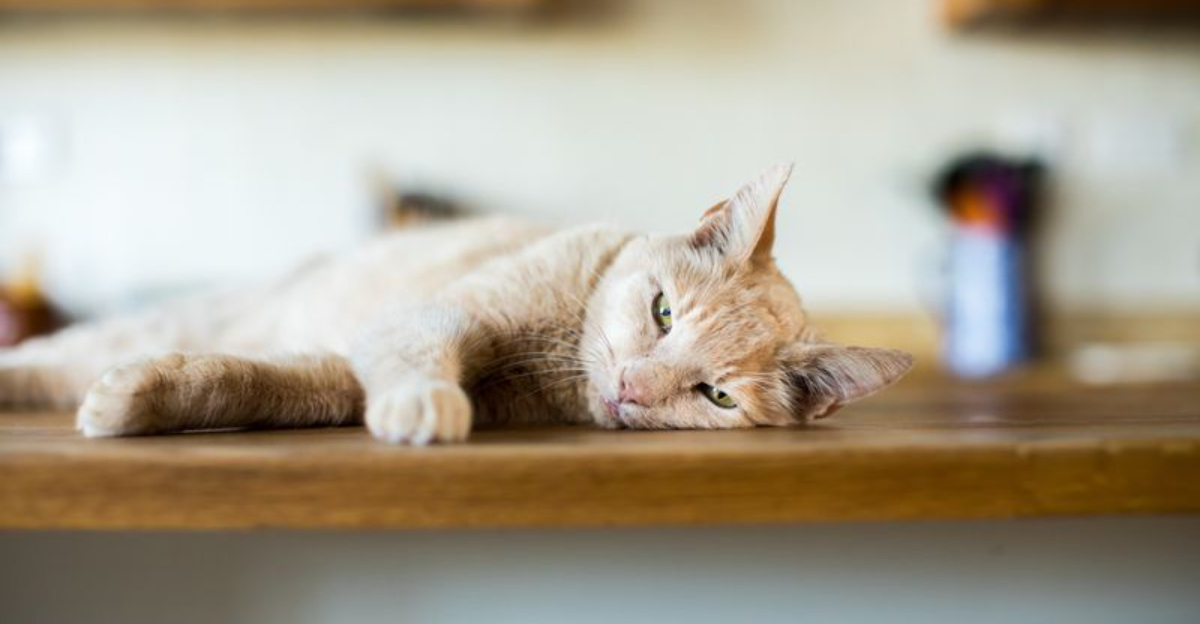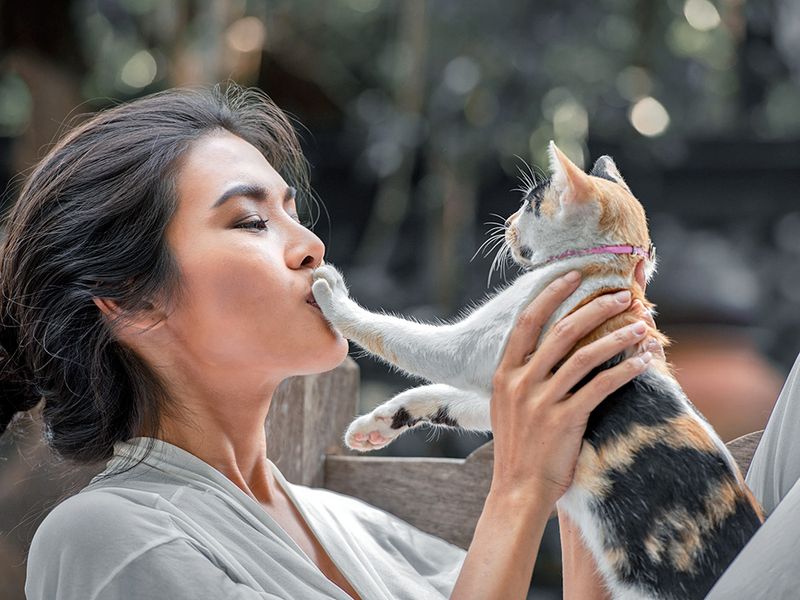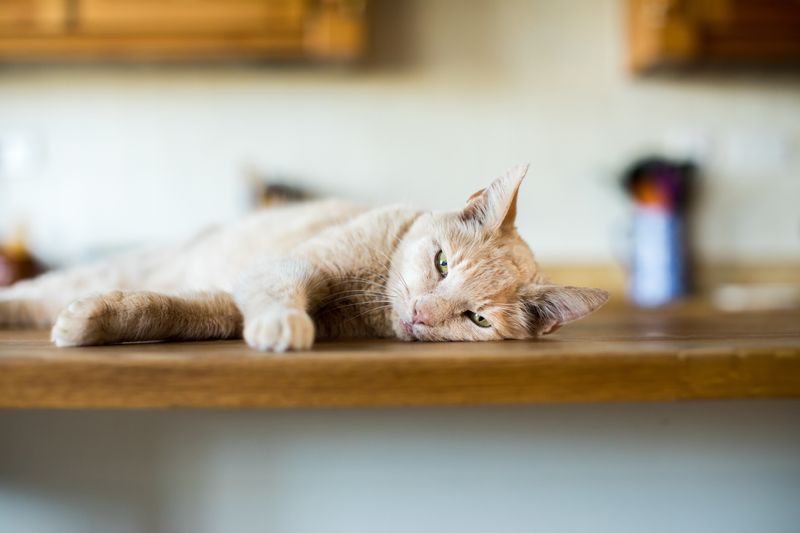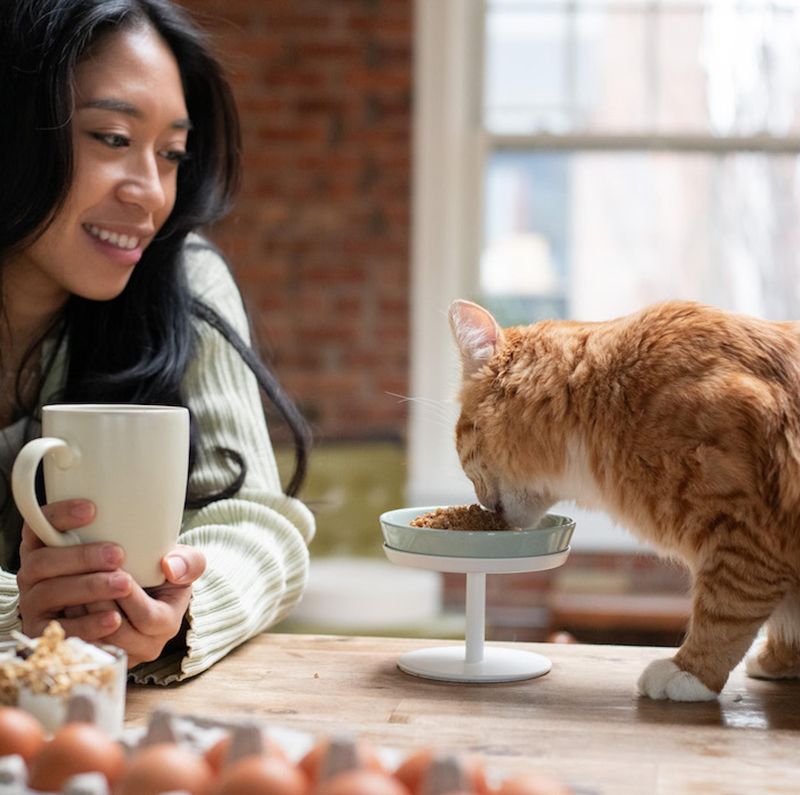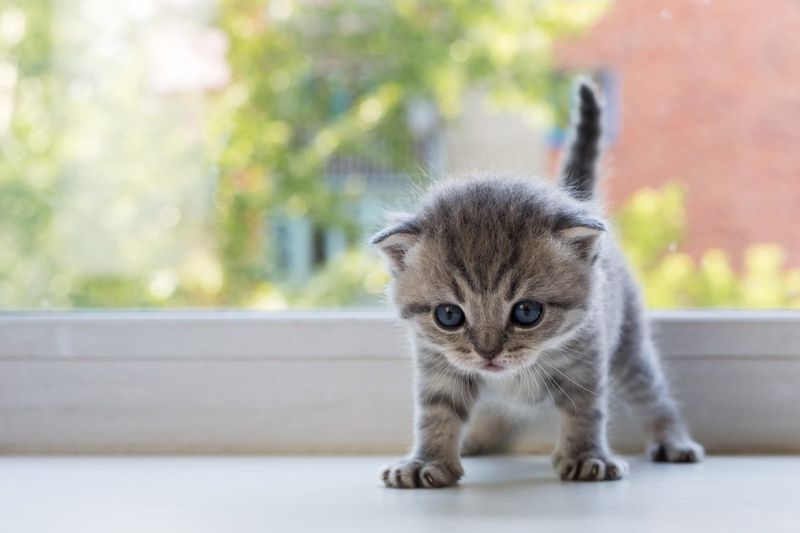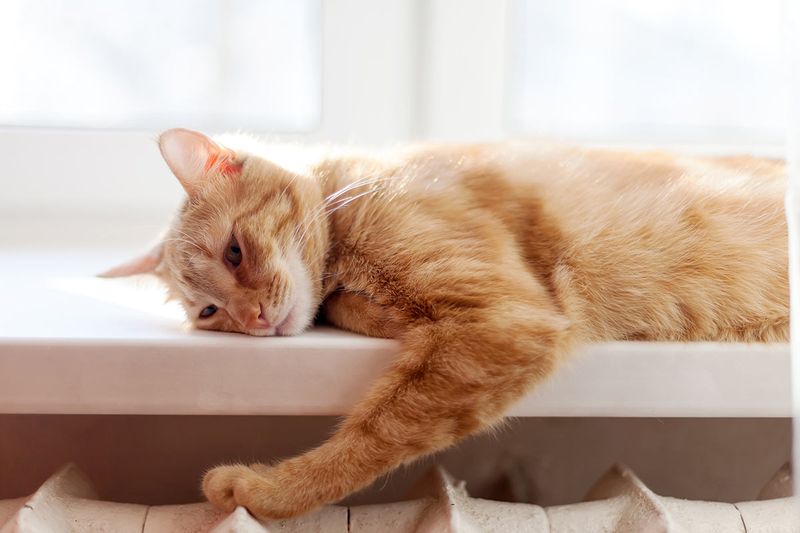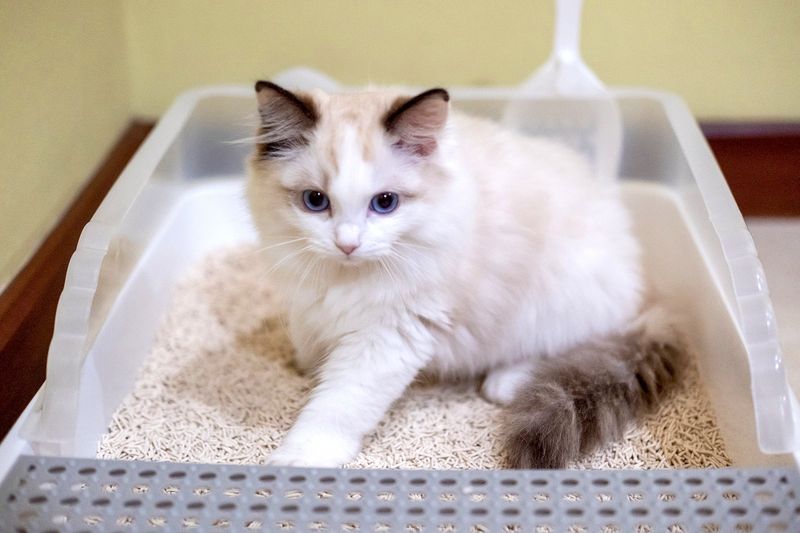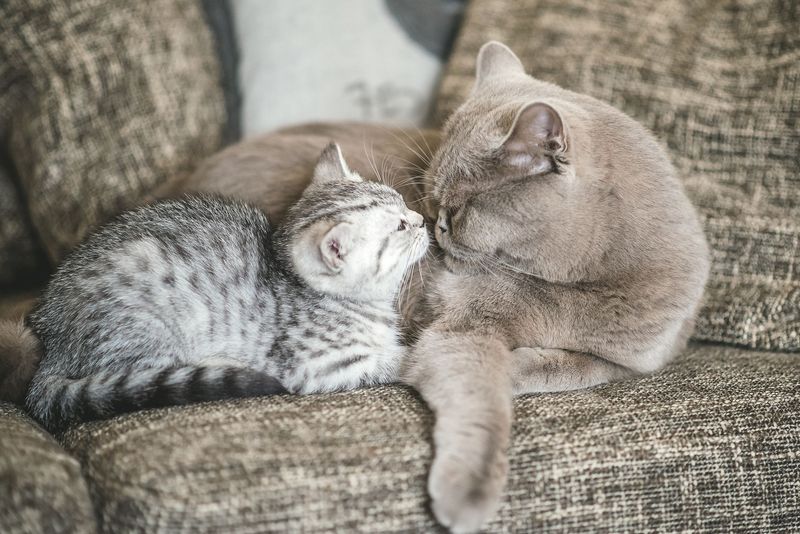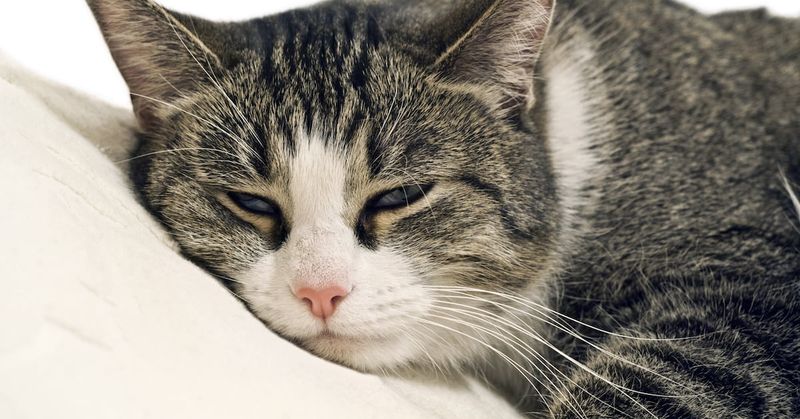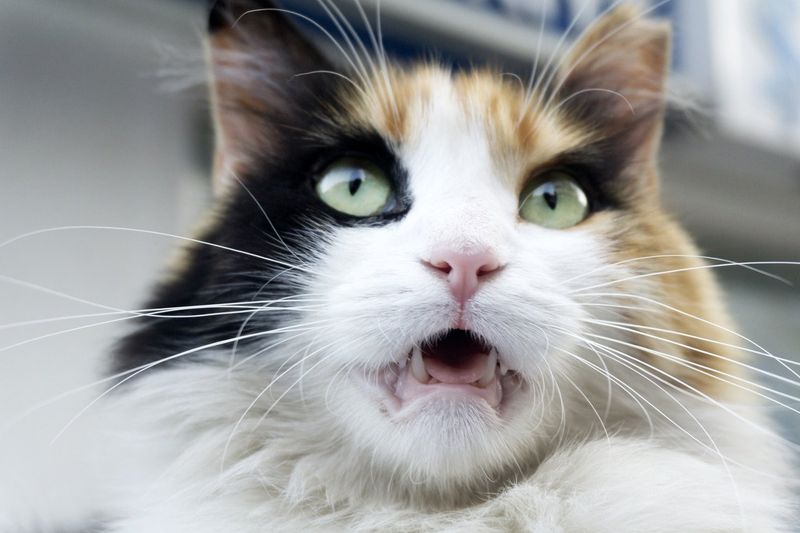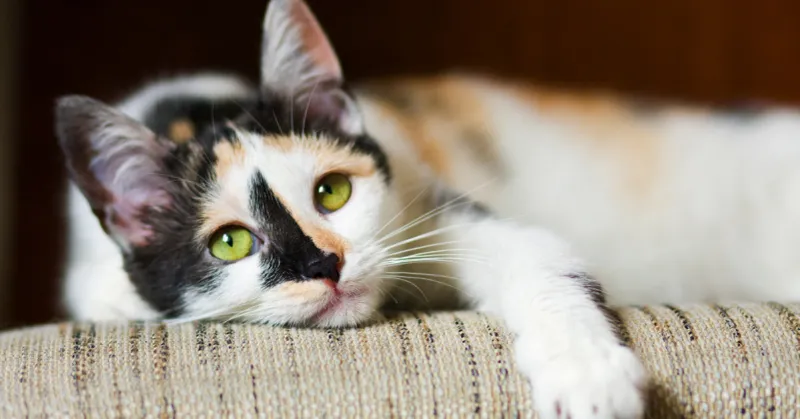📖 Table of Content:
- 1. Forcing Unwanted Cuddles
- 2. Skipping Regular Playtime
- 3. Inconsistent Feeding Schedule
- 4. Loud or Startling Behavior
- 5. Using Punishment Instead of Redirection
- 6. Ignoring Litter Box Cleanliness
- 7. Bringing Strange Animals Home
- 8. Staring Contests and Direct Eye Contact
- 9. Using Strong Scents or Chemicals
- 10. Disrupting Their Routine With Frequent Changes
Cats are mysterious creatures with complex personalities and preferences. When your feline friend starts giving you the cold shoulder, it’s not just a coincidence – you might be doing something to push them away. Understanding these behaviors can help repair your relationship with your cat and create a happier home for both of you.
1. Forcing Unwanted Cuddles
Cats value their personal space more than we realize. When you grab your kitty for a hug without checking their mood first, you’re teaching them that interactions with you feel unsafe. Most felines prefer to approach on their own terms.
They enjoy affection but want to control when and how it happens. Reading your cat’s body language before petting helps build trust instead of breaking it. Try sitting quietly nearby instead, allowing your cat to come to you when ready. This patience shows respect for their boundaries and makes them more likely to seek you out later.
2. Skipping Regular Playtime
Neglect your cat’s need for play, and they may start neglecting you too. Physical activity and mental challenges keep them content and connected to you. Daily playtime helps prevent behavioral issues and strengthens your bond.
Even just 10-15 minutes twice daily can make a huge difference in your relationship. Interactive toys that mimic prey movements are especially effective. Regular playtime reduces problem behaviors while strengthening your bond. Your cat will associate you with fun and excitement rather than boredom and frustration.
3. Inconsistent Feeding Schedule
Unpredictable feeding times can leave cats feeling stressed and insecure. They rely on structure, and when meals come late or randomly, they may distance themselves. A consistent schedule helps them feel safe—and keeps your bond strong.
When feeding schedules constantly change, cats become insecure about when their next meal arrives. This uncertainty makes them cranky and distrustful. Many will start hiding or keeping their distance from the unpredictable human. Setting consistent feeding times helps your cat feel secure. Consider using an automatic feeder if your schedule varies. Your feline will appreciate knowing exactly when food appears, improving your relationship.
4. Loud or Startling Behavior
Unexpected loud sounds and chaotic activity easily overwhelm cats. Sudden vacuuming, clattering kitchenware, or raised voices can make them feel unsafe, prompting them to hide or avoid the area altogether.
Your home should feel like a safe haven for your feline friend. When it regularly becomes unpredictably noisy or chaotic, they’ll seek quiet hiding spots away from you. This retreat isn’t personal – it’s a survival instinct. Give your cat advance notice before noisy activities when possible. Provide safe, quiet spaces they can retreat to during unavoidable loud events. Your consideration builds trust that you’ll protect their sensitive hearing.
5. Using Punishment Instead of Redirection
Spraying water, shouting, or physically disciplining your cat creates fear, not understanding. Cats don’t connect punishment with their actions the way humans expect – they simply learn to fear the punisher (you).
Effective cat training focuses on positive reinforcement and environmental management. When your cat scratches furniture, provide appropriate scratching surfaces nearby and reward their use. This teaches what TO do rather than what NOT to do. Redirect unwanted behaviors to acceptable alternatives instead of punishing. Your cat will see you as a source of good things rather than someone to avoid, strengthening your bond rather than damaging it.
6. Ignoring Litter Box Cleanliness
Cats are naturally clean animals with sensitive noses. A dirty litter box is like a filthy, unflushed toilet that they’re forced to use repeatedly. Would you want to hang around someone who made you use disgusting bathroom facilities?
Regular scooping (at least daily) and complete litter changes are essential for your cat’s comfort and dignity. Many cats will deliberately avoid their humans when forced to use soiled boxes, associating the unpleasant experience with you. Provide multiple clean boxes in quiet locations for multi-cat households. The rule of thumb is one box per cat plus one extra, ensuring everyone has access to fresh facilities.
7. Bringing Strange Animals Home
Suddenly introducing new pets without proper preparation feels like a betrayal to your resident cat. Their territory – which they consider exclusively theirs – is now invaded by a stranger they didn’t approve. Cats need slow, careful introductions to new animals over weeks, not days. Rushing this process often creates lasting hostility between pets and resentment toward you.
Your existing cat may retreat to avoid both the newcomer and the person who brought this chaos. Always separate new animals initially, allowing scent exchanges before visual contact. This gradual approach respects your cat’s territorial nature and gives them time to adjust to the idea of sharing their space.
8. Staring Contests and Direct Eye Contact
Direct, prolonged eye contact is threatening in cat language. When you stare at your cat, you’re unknowingly issuing a challenge that makes them uncomfortable and defensive. They’ll often respond by leaving the room entirely.
Cats prefer subtle communication through slow blinks and sideways glances. The famous “slow blink” is a sign of trust and affection – it signals that they feel safe enough to momentarily close their eyes in your presence. Try looking slightly away while in your cat’s company, occasionally offering slow blinks instead of stares. This respectful body language tells your cat you’re friendly, not confrontational, encouraging them to stay near you.
9. Using Strong Scents or Chemicals
What smells nice to you might be overpowering to your cat. Their noses are roughly 14 times more sensitive, making things like scented candles or cleaning products potentially distressing. Many cats will steer clear of strong-smelling environments.
This isn’t pickiness – it’s self-protection from sensory overload. Essential oils can be particularly problematic, as some are toxic to cats even when diffused. Choose unscented or naturally scented products when possible. Ensure good ventilation when cleaning, and keep your cat away until chemical smells dissipate. Your consideration for their sensitive noses shows respect that builds trust.
10. Disrupting Their Routine With Frequent Changes
As creatures of habit, cats rely on a stable environment. Rearranging their favorite spots or moving their bed can cause anxiety, making them more cautious around you. Each shift disrupts their sense of security and comfort.
This constant vigilance is exhausting and anxiety-producing. Many cats respond by withdrawing from interaction, preferring to observe from a distance until they feel secure again. When changes are necessary, make them gradually when possible. Maintain consistent feeding, playing and sleeping routines even during transitions. Your cat will appreciate the stability you provide amidst change.
